Reliable Mental Health & Virtual Therapy Apps in 2025 (+ Free Tools)
Finding a self-help or virtual therapy app that can actually make a difference in your life can be a frustrating process. These apps have exploded in popularity since they help users bypass the practical and financial barriers that make getting in-person support tough. And though evidence suggests that some apps can help users improve their symptoms, many haven’t been studied or may be harmful to some folks. To help you find a reliable option, I put together this list of personal reviews of 20 mental health apps. I also included free online resources and tips for things to look for in a top-quality mobile application.
To get started, I’d suggest that you talk to a licensed mental health care professional about these apps before downloading them. In this article, I describe what I thought of them, but your experience may be different. A trained professional can help you make the best decision for your situation. Plus, many mental health apps are most helpful when used with a therapist.
Please note that mental health apps don’t substitute in-person professional care and aren’t intended to provide emergency help. If you or someone you love is in a dangerous situation, please contact your local emergency services immediately.
Editor’s Note: We value our relationship with our readers, and we strive to earn your trust through transparency and integrity. We are in the same ownership group as some of the industry-leading products reviewed on this site: ExpressVPN, Cyberghost, Private Internet Access, and Intego. However, this does not affect our review process, as we adhere to a strict testing methodology.
Self-Help, Virtual Therapy, and Free Mental Health Apps to Consider in 2025
Tips to Choose a Reliable Mental Health Care App in 2025
Before considering the apps I tested, you may want to discuss the following recommendations with your provider to help you select a high-quality platform.
Start by researching the creators of the app. As of 2025, there are 10,000+ mental health apps available. Some have been created by healthcare professionals, researchers, and trained experts. Others were made by well-meaning designers who may not have the training necessary to create helpful programs. Look for apps that were created by or are recommended by licensed professionals and trusted healthcare organizations (like the Canadian Centre for Addiction and Mental Health, American Psychological Association, etc.).
Check to see if the apps have been researched. The best mental health care tools and therapies are tested by trained researchers to see if they’re effective and in what conditions they work the best. The results of these tests help creators improve their platforms. Unfortunately, not all apps are well-researched. They might not even be based on clinical recommendations or sound science! This means that some apps are helpful but others could be ineffective or even harmful. Talk to your provider to find out if the apps you’re interested in offer you the best techniques available.
See what the experts have to say about it. To help you and your provider figure out which app best fits your needs, you can also check out expert reviews. Mental health care professionals and researchers have already tested tons of mobile applications. You can check out these resources created by the American Psychological Association and One Mind PsyberGuide to see if the apps you’re interested in have already been evaluated.
Best Paid + Free Self-Help Mental Health Apps in 2025
1. Happify: Uses a Variety of Tools to Provide a Personalized Path to Positivity
Happify is loaded with different types of content including guided meditations, cognitive behavior therapy aids, positive psychology lessons, and more. There’s a lot to enjoy in this easy-to-use app. If you’re looking for more ways to create wellbeing for yourself, Happify is a great place to start. That said, Happify’s business model provides a tiny amount of content for free and then asks you to pay to access the majority of its tools. If you’re okay with paying the price, Happify can be very helpful. You can download Happify for free on Google Play and the Apple App Store. Its premium service, Happify Plus, comes in monthly or yearly payment plans.
2. Mindshift CBT: Gives You Tools to Manage Anxiety Through CBT
Designed by the nonprofit Anxiety Canada Association, Mindshift CBT is rare since it’s 100% free. Mindshift CBT’s goal is to help you manage your anxiety through the use of cognitive behavioral therapy practices. It incorporates several features to support you in accomplishing this goal. This includes daily mood check-ins and guided mindfulness meditations. If you’re currently in therapy, Mindshift can also send your progress data directly to your therapist. This option is disabled by default. If you’re looking for an easy way to manage your anxiety and help your therapist treat you, Mindshift CBT is an excellent choice. You can get Mindshift CBT at no cost from Google Play and the Apple App Store.
3. Moodfit: Helps You Track Your Mood and Keep Your Mind in Top Condition
Tracking your mood can be a difficult thing to do on your own. That’s where apps like Moodfit come in. Moodfit is among the best mood-tracker apps available because it’s easy to use and filled with top-quality features. Like many others though, the app isn’t totally free. It only provides a handful of features at no cost with the rest locked behind a paywall which you might find overpriced. You can get Moodfit free from Google Play and the Apple App Store to see if it’s a good fit for you before you subscribe. Its premium subscription service comes in 3 payment models: monthly, once every 3 months, or yearly. A 14-day free trial for the service is included if you sign up on the app. If you sign up for Moodfit’s mailing list on their website, you can also gain access to a 30-day free trial of the service.
4. PTSD Coach: Teaches You Techniques to Help Manage Your Symptoms
PTSD can be a difficult mental health issue to treat. It can also be challenging to find a mental healthcare professional who specializes in providing care for trauma survivors. Together with professional care, PTSD Coach might be able to help you manage your PTSD more effectively. Designed by the US Department of Veteran’s Affairs, it’s among the most popular support programs for folks dealing with PTSD. It’s packed with resources to learn techniques to help you manage symptoms that affect your anger management, sleep, and much more. Best of all, all of its features are completely free. You can find PTSD Coach on Google Play and the Apple App Store, as well as on your PC as a desktop app.
5. Fabulous: Keeps You Accountable While Building a Better Daily Routine
If you’re struggling with your mental health, it can be difficult to build a healthy routine for yourself. Fabulous is like an accountability partner that can help you create better habits by setting reminders for routines, track your progress, and motivate you. I’d recommend Fabulous as a way to help eliminate some of the stress that building new habits might cause. You can download the app for free on Google Play and the Apple App Store, and use Fabulous at no cost for 1 week or get an annual subscription to the premium version. The premium version unlocks all Journeys, Challenges, and Trainings. It also allows you to backup your progress on your journeys and restore them if you switch devices.
6. MindDoc: Gives You Top-Quality Statistics and Mood-Tracking to Better Check Your Mental Health Progress
Formerly known as Mindpath, MindDoc offers both a mood tracker and one of the largest virtual libraries of mental health exercises and tools. It even provides statistics to help you monitor your progress over time. I liked that it offers personalized journaling prompts, exercises to help with your struggles, and tips to show you how to recognize mood patterns. With such a wide variety of content for you to try, MindDoc almost certainly has something that will be helpful for you. MindDoc has a free service that will help you get an initial assessment of your well-being. If you decide to use the service, subscriptions are available in monthly or yearly options and include the first 7 days free. You can download MindDoc for free on Google Play and the Apple App Store.
7. CBT Thought Diary: Tracks Your Mental Health Journey
Cognitive behavioral therapy can help many people cope with a variety of mental health issues. This approach often incorporates mood tracking and journaling. If you’re looking for a way to monitor your moods and help with improving your therapeutic process, CBT Thought Diary might be helpful to you. That said, its premium service model is quite restrictive. In fact, you’ll have to get a subscription to password-protect the app. In my opinion, no one should ever have to pay to protect their sensitive health details. You can try CBT Thought Diary for free on Google Play and the Apple App Store for the first 7 days. If you like the service, it also offers monthly and yearly subscription plans.
8. notOK: Helps You Reach Out Even When You Feel Stuck
Sometimes, when our anxiety spikes or our depression hits a low point, we need to reach out for help but find ourselves unable to do so. Designed by people who went through similar experiences, notOK acts as a panic button for when you can’t find the words to communicate how you feel. You can use the app to select a group of trusted friends and family to be automatically contacted when you activate notOK. Please note that this doesn’t put you in touch with a licensed professional or police. If you are having suicidal thoughts and need help, do not use notOK as a substitute for professional help or suicide prevention hotlines. That said, this 100% free app can be a good resource if you don’t have the words to get help. Download notOK for free on Google Play and the Apple App Store. You can also sign up to become a monthly sponsor (although this won’t unlock any premium features).
9. Recovery Record: Keeps You on Track to Beating Your Eating Disorder
Recovery Record is a great app to support people who struggle with eating disorders. It offers tons of practical tools like customizable meal plans, food logs, reminders, and much more to help you keep your recovery on track. You can even share the data on the app with your treatment team so everyone stays up-to-date with your progress. Best of all, it’s completely free with no content hidden behind a paywall. You can find it on Google Play and the Apple App Store, as well as their website.
10. Rootd: Provides a Number of Tools to Help Manage Your Anxiety
Rootd is an app designed to help you manage anxiety and panic attacks. It offers a panic button, breathing exercises, a journaling tool, and educational information about panic attacks. I think some of these features could be useful, although the app does have a few important flaws. I was disappointed that the free version is pretty limited. Additionally, I’m not sure how useful the panic button (called “Rootr”) is for someone experiencing a panic attack. There are 2 different methods to access it and both require you to click through multiple prompts to get assistance. That said, you might find other aspects of the app more useful. Rootd offers a limited free version which you can get from Google Play and the Apple App Store. If you like it, it offers 3 premium subscription plans: monthly, yearly, and a one-time payment for lifetime access.
11. Moodkit and Moodnotes: Tracks Your Mood and Enhances It With Amazing Exercises
Moodkit and Moodnotes are useful companion apps developed by Thriveport. Moodkit is a library of activities, exercises, and information to help improve your day-to-day mood. Similarly, Moodnotes is a mood tracker that can help you note which Moodkit exercises and other activities work for you. Moodkit and Moodnotes are a great pair of apps to help you monitor how you’re feeling and learn new exercises to help improve your emotional wellbeing. I also appreciated that none of Moodkit’s content is restricted by a subscription. There is just a one-time payment to download the app, and Moodpath is completely free. The only real issue is that the apps are exclusive to iOS. Both are available to download on the Apple App Store.
12. MoodTools: Helps to Make Your Depression Manageable
MoodTools is a simple app designed to help you track and manage depression. It offers a Thought Diary, access to a clinically-approved depression questionnaire, suicide prevention planning tools, and many other features. With so many subpar apps out there, it gave me peace of mind to see that MoodTools even received a positive review from the American Psychological Association. If you’re looking for ways to ease your depression and learn more about it, MoodTools is a great resource. The main features of this app are totally free but unfortunately, if you want to use a passcode, export your data, or use cloud sync, you need to pay for a subscription. Download MoodTools for free on Google Play and the Apple App Store. If you decide you want the add-on services, you can choose from 3 subscription options: monthly, yearly, or a one-time payment for lifetime access.
13. Remente: Makes Self-Care Easier With Exercises, Goals, and More
Remente is a well-made app with useful tools like a self-care journal, a curated collection of mental health exercises, and a library of self-care goals. With a suite of top-quality features and an easy-to-use interface, Remente can be a great app to help you take care of yourself. Unfortunately, it locks almost all worthwhile content behind a large subscription fee. I am also skeptical of the app’s daily video sessions with life coaches. After all, life coaches don’t have the same skills or preparation as licensed mental health professionals and shouldn’t be used as a replacement for therapy. That said, Remente has some other useful features that you might enjoy. Try the limited version of Remente for free on Google Play and the Apple App Store, as well as on your desktop as a browser-based app. If you subscribe, there are 3 payment plans to choose from: monthly, yearly, or a one-time payment for lifetime access.
14. Daylio: Makes Journaling and Mood-Tracking Easier Than Ever
In a market where more features tend to equal more success, it’s refreshing to see a mental health app that sticks to the basics. Daylio is a simple diary and mood-tracking app with an easy-to-use interface. The statistics it provides on your mood history and other related topics also conveniently let you get an overview of how you’ve been feeling. Unfortunately, the majority of its useful content is only available when you subscribe. You can try Daylio’s free content and unlock the premium content with a 7-day free trial on Google Play and the Apple App Store to see if it’s right for you. If you’re ready to purchase a subscription, it has monthly and yearly plans available.
15. PE Coach: Works With Your Therapist to Help Manage Your PTSD
Designed as an aid for Prolonged Exposure therapy, PE Coach is a great free app for people undergoing this sort of treatment who want an app to complement their sessions. It provides a nice list of exercises, and it lets your therapist assign goals and tasks to complete outside of sessions. It can even provide you with appointment reminders if you have difficulty keeping track of them. PE Coach is completely free from Google Play and the Apple App Store.
Best Paid + Free Virtual Therapy Apps to Talk to a Real Mental Health Care Professional in 2025
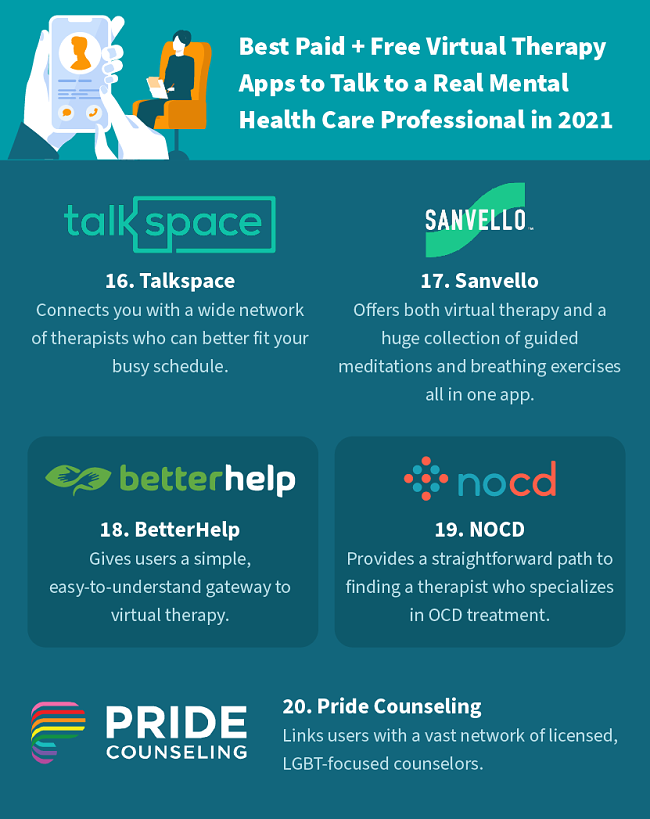
16. Talkspace: Connects You With a Therapist on Your Schedule
I was excited to learn that Talkspace’s mission is to make therapy available and affordable for all. As a virtual therapy platform, Talkspace lets you select a mental health professional and connect at a time and in the way that works best for you. To me, this is a huge benefit because I have trouble finding time in my schedule to see a therapist during normal office hours. It even allows you to message or send audio recordings at any time. Some subscriptions also let you set up video sessions.
In terms of size, Talkspace is one of the largest apps in its niche. I loved that it allows you to pick a mental health professional to work with from its huge network. You can search for counselors according to their experience, areas of specialty, therapeutic methods, and availability. Better yet, if you feel you’re not connecting with your counselor, you can always switch.
While I liked many aspects of this platform, I was uncomfortable to find that Talkspace has also been criticized for some questionable business practices. This includes using burner phones to boost customer reviews. Some users have also reported difficulties canceling subscriptions and with customer support. In other cases, some counselors canceled appointments with little notice, were unresponsive, or totally cut off contact with users. While this wasn’t my experience using the platform, I can’t even imagine how upsetting it would be to have your therapist ignore you or disappear!
If you’re interested in trying it, you can download the Talkspace app for free on Google Play or the Apple App Store. It’s also available on your computer with its browser-based app. The platform offers several different subscription plans based on the patient (couples, teens, or individual adults) and therapeutic modality (messaging only, messaging and video calls, etc.). These prices are some of the highest on the market and might be too expensive for many users.
17. Sanvello: Provides You With an All-in-One Source for Self-Care and Virtual Therapy
Sanvello is a hybrid meditation and mental health app. I was impressed to find that this platform offers a bit of everything: guided meditations for relaxation, guided journeys to teach coping skills, and virtual therapy with professionals. It also features a community function, allowing you to interact with other users and learn from their experiences. Formerly known as Pacifica, the platform’s unique approach and intuitive interface have earned positive reviews from the APA and millions of real users.
That said, I have doubts about some of the claims that Sanvello makes. For example, its coaching doesn’t involve licensed therapists but “Sanvello Coaches.” The website describes coaches as friends that help to motivate you and says they’re highly trained in cognitive behavior therapy. Though there were a few details about their training available, I’m still hesitant about this sort of life coach add-on. Sanvello also claims that its users who also accessed the coaches were twice as likely to see clinically significant improvement in areas like stress and anxiety. Unfortunately, the research provided on the website didn’t seem to analyze the efficacy of the coaching service.
With regards to cost, Sanvello has both strengths and weaknesses. I was initially disappointed that it doesn’t have a lot of truly free content. That makes it difficult to know if the service is right for you before subscribing. However, I was impressed that Sanvello is covered by several major US insurance providers and employee assistance programs. That means that if your provider covers it, some of the subscription options might be 100% free. Even if your provider doesn’t cover it, its prices are potentially cheaper than what you might pay otherwise.
Sanvello’s premium membership has 3 tiers: Self-Care, Coaching, and Therapy. Self-Care unlocks all premium features on the app, while Coaching provides you with 1:1 coaching and live Q&A sessions to further your CBT practice. The Therapy plan sets you up with licensed therapists for counseling. Self-Care and Coaching offer monthly and yearly plans, whereas the Therapy plan bills you for each session. You can get the Sanvello app for free on Google Play and the Apple App Store to check out the subscription options and see if it’s covered by your insurance.
18. BetterHelp: Gives You Access to Remote Therapeutic Care
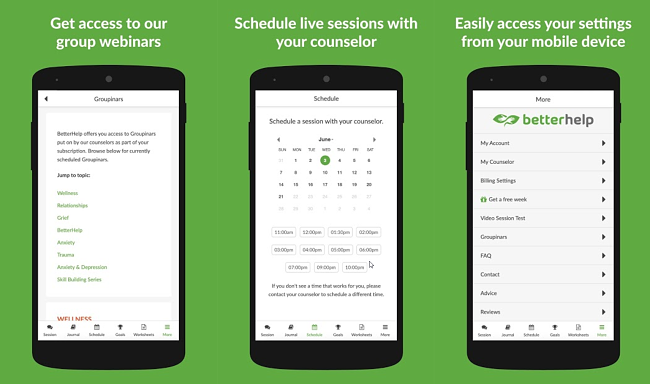
A lot of the apps on this list are packed with so many features that it can feel overwhelming to use them. That’s why I appreciated that Betterhelp is straightforward and simple to use. Betterhelp connects you with a mental health professional for virtual therapy. It’s not bogged down by subscription tiers, guided meditations, confusing mood trackers, or other features. If you’re looking for a simple app for virtual therapy, I think that Betterhelp is one of your best bets.
The main issue I have with Betterhelp is that most US insurance companies do not cover its sessions. This means it can be more expensive than you might expect. While the app is free to download on Google Play, the Apple App Store, and your desktop, therapy sessions are billed based on your preferences, location, and therapist availability.
19. NOCD: Makes Sure You Have OCD-Focused Therapy When You Need It
OCD can be a challenging disorder to handle, and it can be tricky to find a therapist who specializes in treating it. NOCD’s goal is to match you with licensed experts in ERP (Exposure and Response Prevention) therapy to help you manage your OCD. The platform is otherwise very straightforward and easy to use.
NOCD is available as a free download on Google Play and the Apple App Store. The service is also available through its website. It charges you per session, and the company partners with several major US insurance providers. You also get a free 15-minute call as a first-time patient. I couldn’t find any listed rates for therapists in the app or on the website. For that reason, I would suggest that you look up your chosen therapist separately for their rates before making your decision.
20. Pride Counseling: Links You With a Quality Network of LGBT-Focused Counselors
As a member of the LGBT community, I know how difficult it can be to find therapists who understand your experiences even if you live in an LGBT-friendly city as I do. It can be even more challenging if you live in an area that isn’t accepting of LGBT folks or where counselors are hard to find. Pride Counseling connects you with a licensed mental health professional who’s focused on providing care to the LGBT community.
While Pride Counseling’s highly trained professionals provide a safe space for many users, it’s not for everyone. For example, the platform can’t be used to give you a new official diagnosis, prescribe you medication, or fulfill court-mandated counseling requirements. Similarly, although many Pride Counseling professionals provide emotional support to many trans folks, they can’t help you in legal/medical transitions or hormone replacement therapy.
My main complaint with the service is that its price is a little high. If the option is available, it might be best to just find an in-person therapist in your area. Pride Counseling app is free to download on Google Play, the Apple App Store, and on your computer through the website. Pride Counseling bills you every 4 weeks and the cost varies based on your location, the length of your subscription, and your income.
Free Online Mental Health Resources and Aids
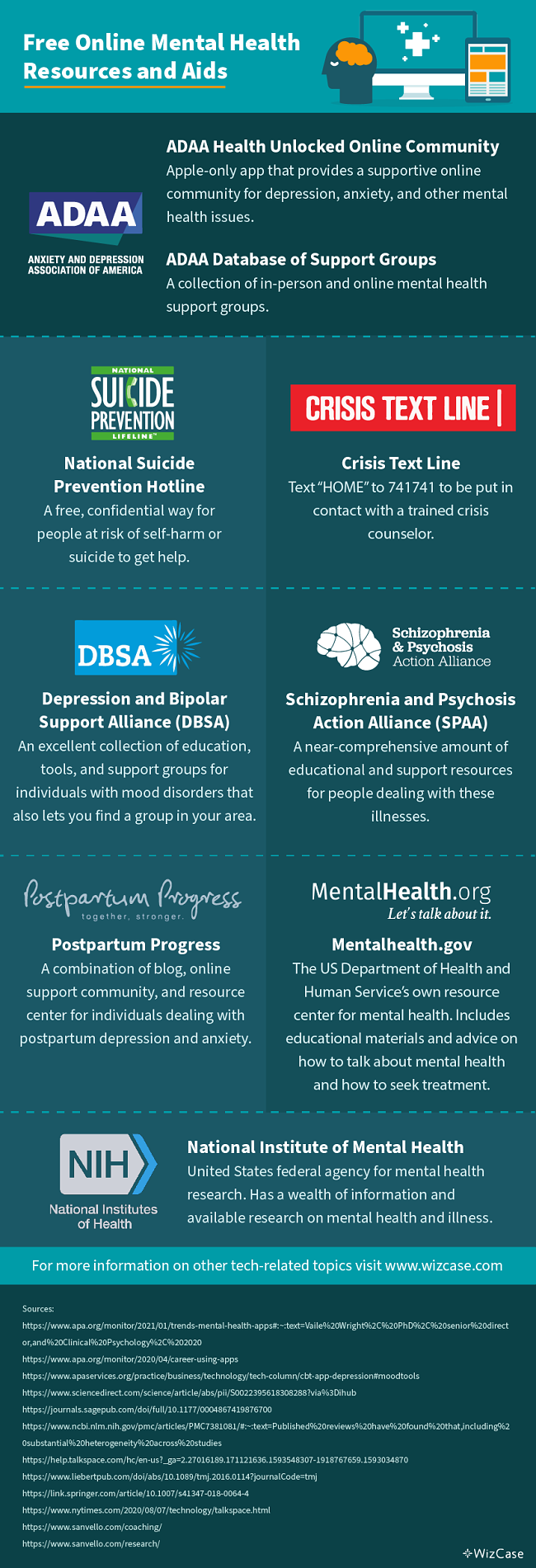
If you need free support in managing your mental health, the following resources might be helpful to you:
ADAA Health Unlocked Online Community: An iOS app that provides a supportive online community for depression, anxiety, and other issues. It doesn’t connect you with a therapist.
ADAA’s Database of Support Groups: A collection of in-person and online mental health support groups. It does not put you in touch with a real mental health professional.
National Suicide Prevention Lifeline: A hotline you can call for help at 1-800-273-8255 if you are at risk of self-harm or suicide. The service is free and confidential.
Crisis Text Line: A free mental health crisis line. You can text “HOME” to 741741 to be put in contact with a trained crisis counselor.
Bliss Therapy: An 8-session free interactive therapy course conducted by the Centre for Interactive Mental Health Solutions. This therapy targets depression.
Depression and Bipolar Support Alliance: A collection of education, tools, and support groups for folks with mood disorders. It can also help you find a support group in your area.
Schizophrenia and Psychosis Action Alliance: A non-profit dedicated to changing the way we treat schizophrenia-related diseases. It also offers educational and support resources.
Postpartum Progress: A combination of a blog, online support community, and resource center for individuals dealing with postpartum depression and anxiety.
MentalHealth.gov: The US Department of Health and Human Service’s resource center for mental health. It includes educational materials and advice about how to seek treatment.
National Institute of Mental Health: The US federal agency for mental health research. It offers educational resources and top-tier research on mental health and illness.
Talk to Your Provider About These Mental Health Apps Today
With thousands of options available in app stores and on the internet, selecting the right self-help or virtual therapy app can feel overwhelming. To give you a hand in this process, I provided my personal reviews of 20 popular apps and websites as well as some insights about things you should look for in a platform. It’s advisable to engage a certified expert in your quest, considering that entrusting your mental well-being to any service is significant! This form of assistance holds particular value since a mental health specialist can guide you away from platforms that may not prove effective or suitable for your unique circumstances.
It’s normal for mental health interventions to take some time to show noticeable improvements in your life. But if you feel like you still need more help, you can bookmark this page to see if there’s another app or free resource you’d like to add to your self-care toolbox in the future.

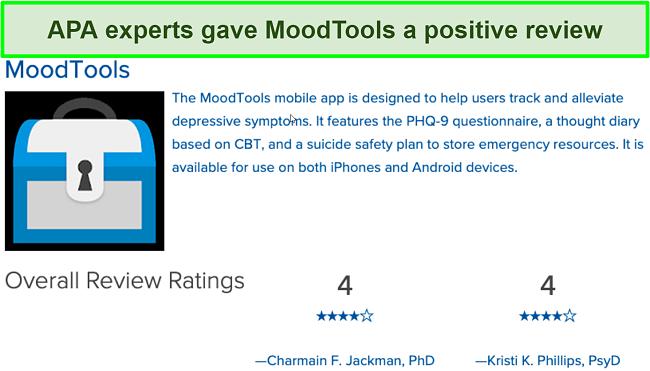
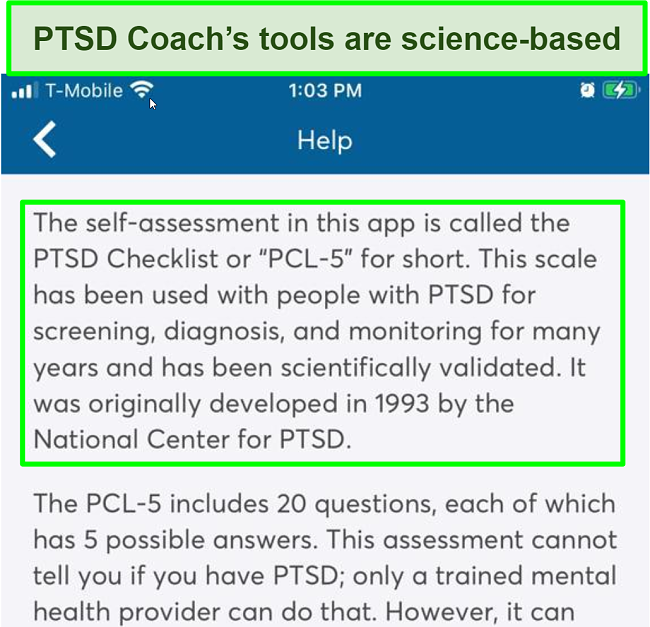
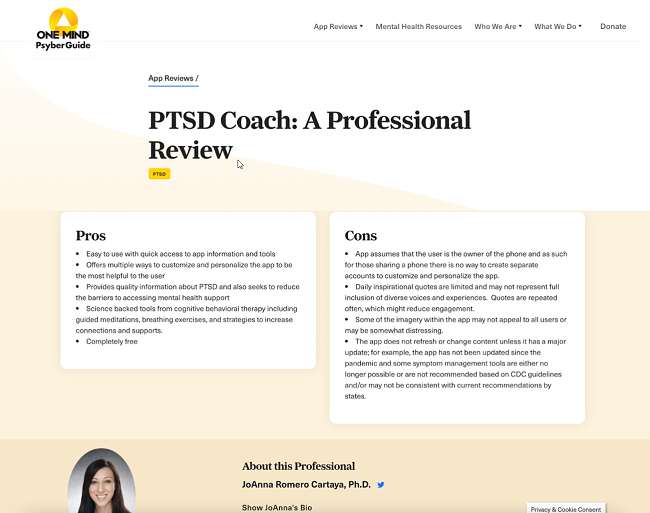

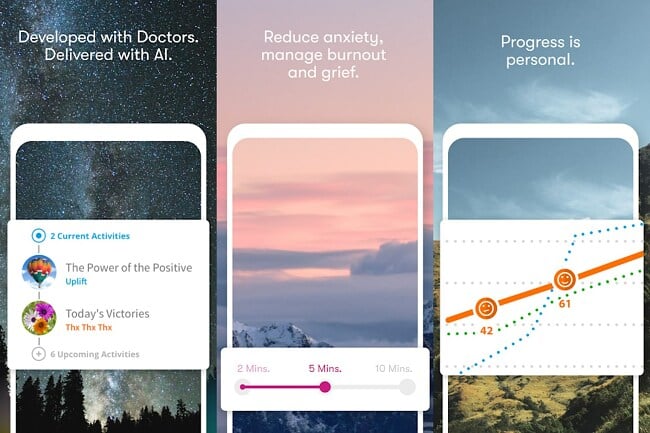
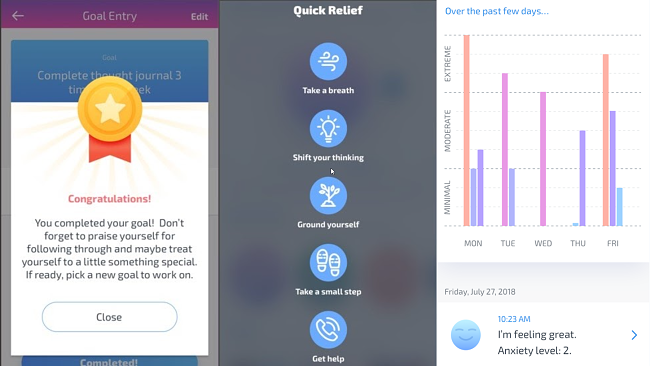
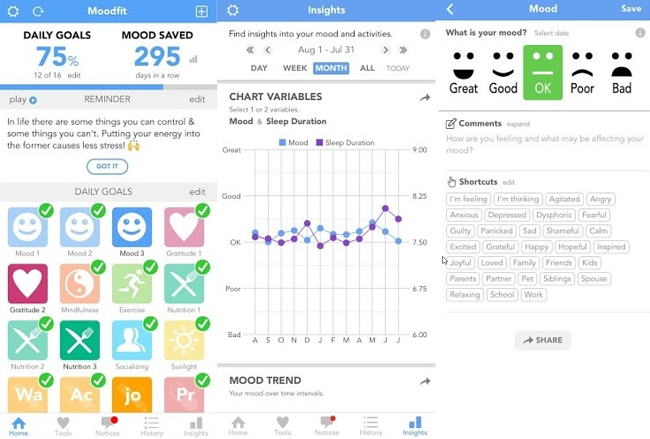
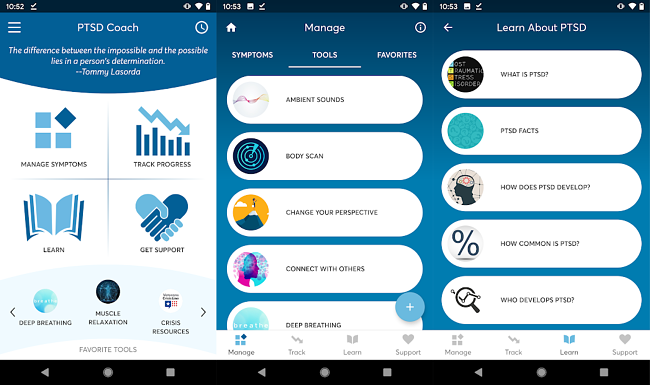
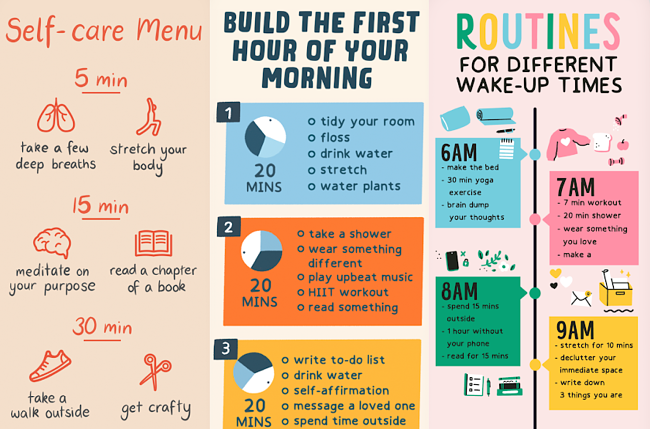
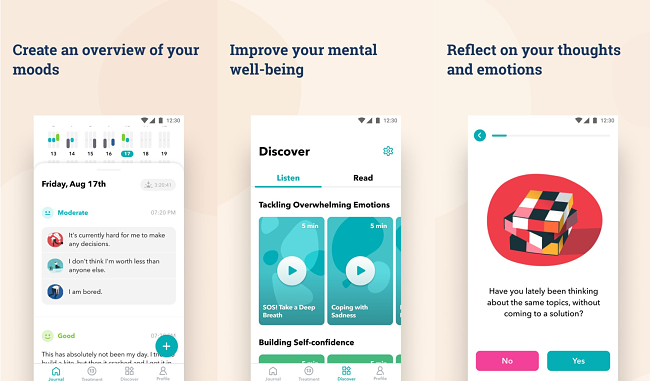
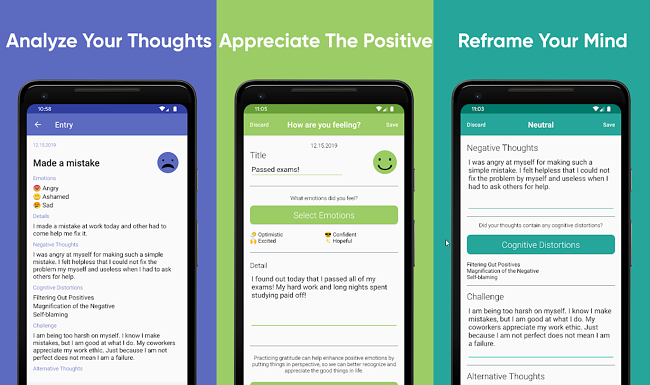
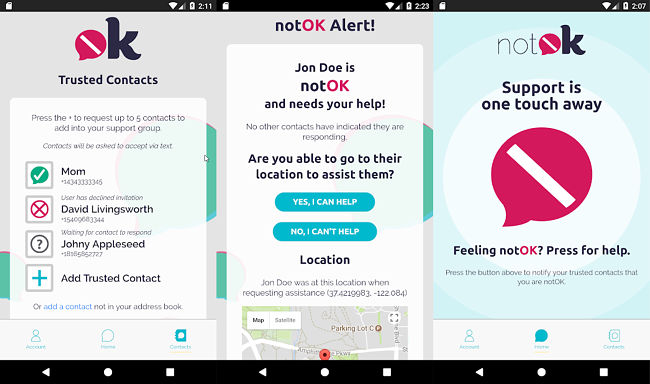
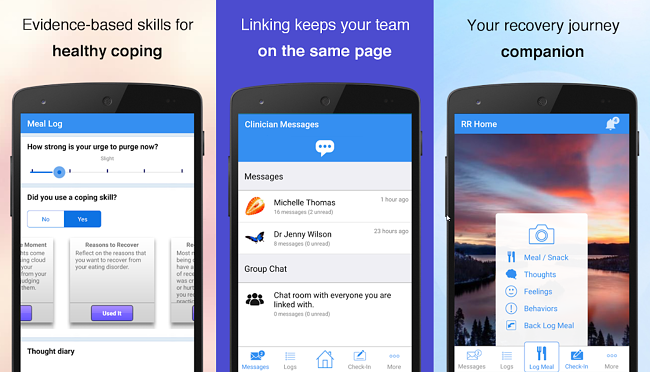
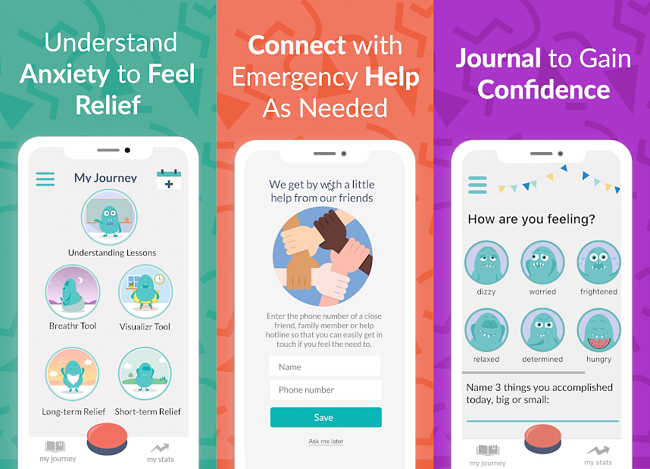
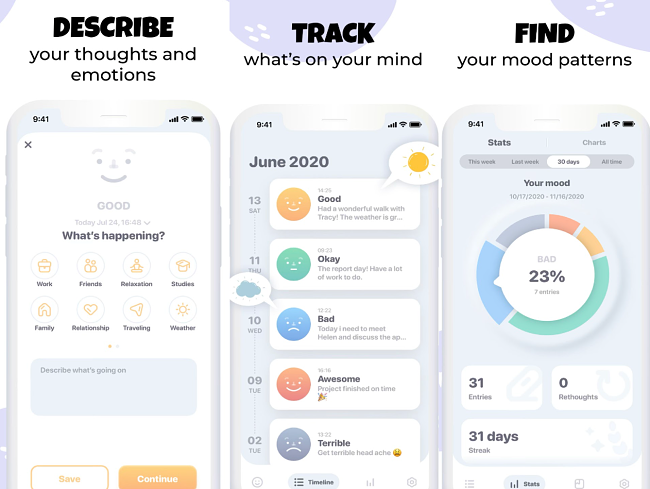
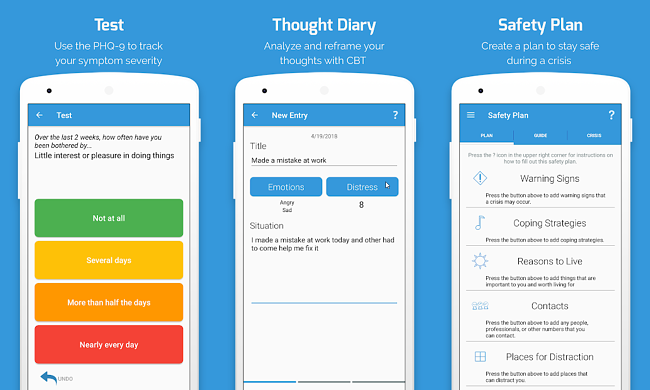
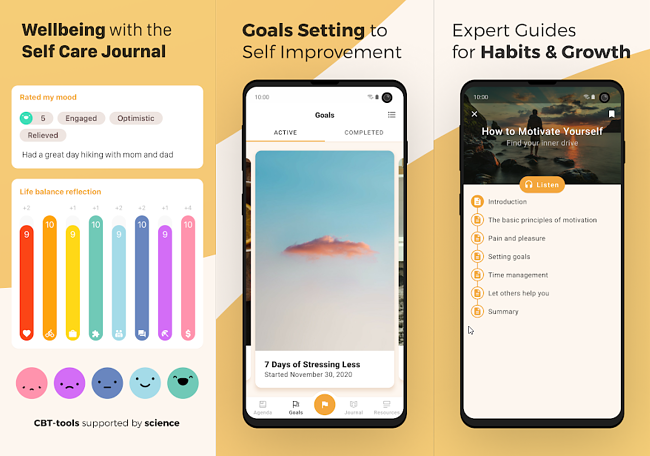
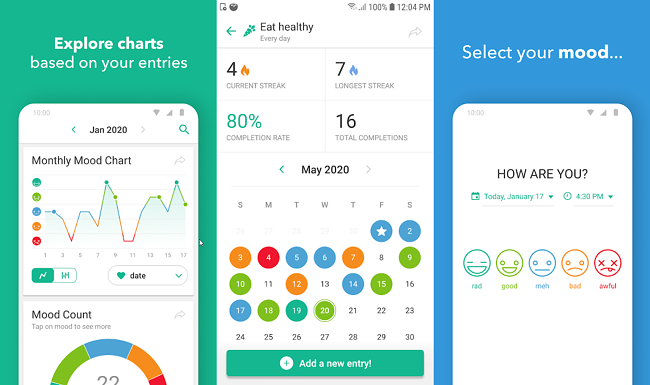
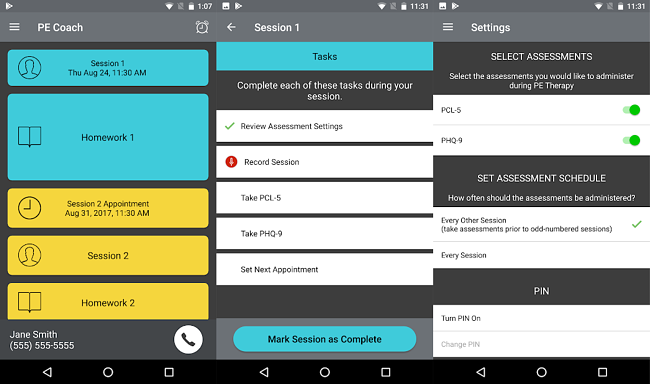
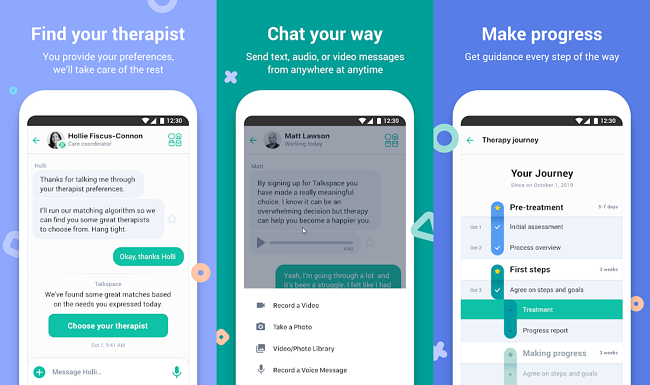
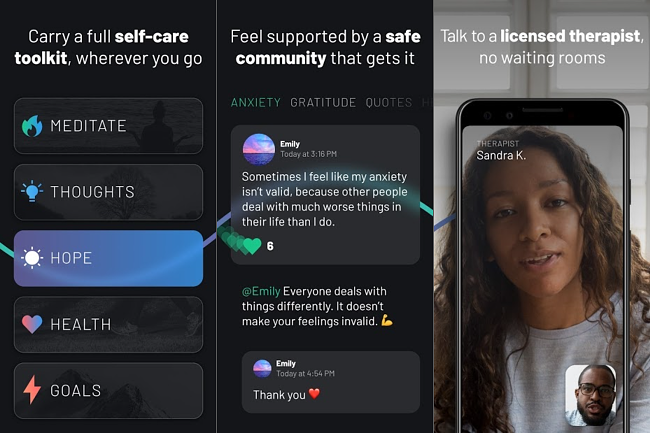
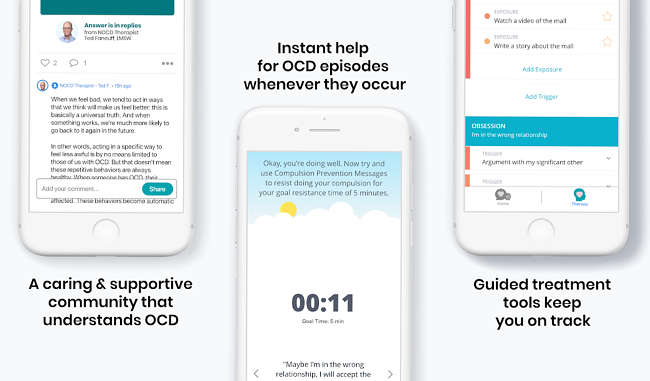
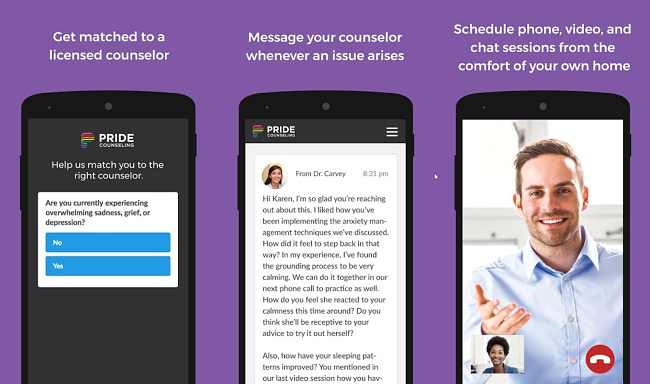



Leave a Comment
Cancel